Featured
 School Is for Making Citizens. Heather C. McGhee and
School Is for Making Citizens. Heather C. McGhee and
Why do we have public schools? To make young people into educated, productive adults, of course. But public schools are also for making Americans. Thus, public education requires lessons about history — the American spirit and its civics — and also contact with and context about other Americans: who we are and what has made us.
That broader purpose is currently under attack. According to PEN America, a nonprofit dedicated to protecting free expression, legislatures in 36 states have proposed 137 bills that would limit teaching about race, gender and American history. When partisan politicians ban the teaching of our country’s full history, children are purposely made ignorant of how American society works. And the costs of this ignorance to American democracy will be borne by us all. Read more
Political / Social
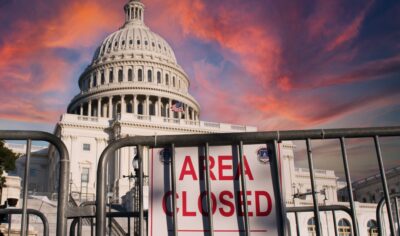 America is finally waking up to the fascist danger: Let’s hope it’s not too late. By Chauncey Devega / Salon
America is finally waking up to the fascist danger: Let’s hope it’s not too late. By Chauncey Devega / Salon
Americans see the threat to democracy at last. But it’s no time to celebrate: The Trumpists aren’t beaten yet
For the last six years or so, most Americans — especially white Americans — were in denial about the monster rampaging across the country. Like privileged children, they believed that if their eyes were closed, the monster couldn’t harm them. The real world does not work that way. As the song lyric (drawn from an Elizabethan poem) warns us, sleep is the cousin of death. That is especially true for democracies in crisis and under siege by fascism and authoritarianism. A much-discussed new poll from NBC suggests, however, that slumbering Americans may finally be waking up. Read more
Related: What Will It Take to Stymie Right-Wing Supervillain Leonard Leo? By Elie Mystal / The Nation
Related: CNN, Politico Want to Give Authoritarianism a Fair Shake. By Alex Shephard / TNR
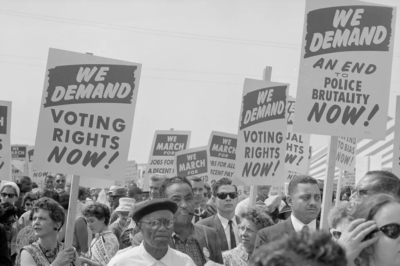 Jim Crow lives again: Florida and Mississippi turn back the clock on voting rights. By David Daley / Salon
Jim Crow lives again: Florida and Mississippi turn back the clock on voting rights. By David Daley / Salon
Felon disenfranchisement was a key 1890 “reform” meant to drive Black voters off the rolls. Now it’s back
Some 130 years ago, white lawmakers gathered in Jackson, Tallahassee, Richmond and other state capitals across the former Confederacy and rewrote their state constitutions to enshrine white supremacy. Over the last week, Mississippi and Florida have offered modern-day examples of Jim Crow-era voter suppression that endures to this day — enacted by state legislatures, enabled by governors with White House ambitions and enforced by federal judges — and that continues to keep hundreds of thousands of citizens, disproportionately Black, from the polls. Read more
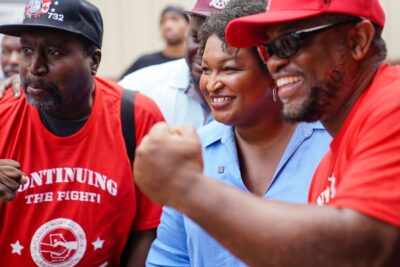 Can Stacey Abrams and Raphael Warnock Make Georgia Blue? By Kevin Lee / TNR
Can Stacey Abrams and Raphael Warnock Make Georgia Blue? By Kevin Lee / TNR
In this battleground state, Democrats are hoping that Senator Raphael Warnock holds onto his Senate seat and that Stacey Abrams can defeat GOP Governor Brian Kemp in November’s midterms.
In the once solidly red South, Georgia has become a spellbinding toss-up state. Not only does Democratic Party star and superorganizer Stacey Abrams have incumbent GOP Governor Brian Kemp in a tight race, but Senator Raphael Warnock is fighting off one of the century’s most befuddling challengers in former football icon Herschel Walker. A state that proved crucial in stopping Trump’s reelection could be vital to retaining Democratic control of the Senate and stopping voter-suppression efforts in one of the nation’s 10 largest metropolitan areas. Read more
Related: Sen. Raphael Warnock vs. Herschel Walker Debate Could Actually Happen. By Keith Reed / The Root
 The Val Demings Gamble. By Adam Harris / The Atlantic
The Val Demings Gamble. By Adam Harris / The Atlantic
Can the Florida congresswoman inherit Joe Biden’s Democratic Party?
If the race does break her way, the Democrats will have the convergence of two separate story lines to thank. The first is the story of Val Demings herself: a centrist Black woman with a background in law enforcement—just the profile the party has placed its bets on in recent years. It’s no coincidence, after all, that Demings joined then-Senator Kamala Harris and former Atlanta Mayor Keisha Lance Bottoms, who both worked as prosecutors before seeking elected office, on Joe Biden’s shortlist for his running mate two years ago. Read more
 FEMA Director Says It’s ‘Too Early’ To Tell When Jackson Will Have Clean Water Again. By Sanjana Karanth / HuffPost
FEMA Director Says It’s ‘Too Early’ To Tell When Jackson Will Have Clean Water Again. By Sanjana Karanth / HuffPost
Residents of Mississippi’s majority-Black capital still don’t have clean water after rains worsened the existing infrastructure.
Residents of Jackson, Mississippi, still don’t have widespread access to clean drinking water as of Sunday, after massive rains and river flooding late last month worsened existing infrastructure problems at one of the two treatment plants in the majority-Black city. Some officials said Saturday that service has been restored to most customers, but the director of the Federal Emergency Management Agency warned on Sunday that it’s still “too early” to tell when the city will have widespread clean drinking water again. Read more
Related: Jackson, Miss., volunteers deliver bottled water to carless residents. By Stephen Bisaha / NPR
 Why Are Black Families Leaving Cities? By Jerusalem Demsas / The Atlantic
Why Are Black Families Leaving Cities? By Jerusalem Demsas / The Atlantic
The demographic shift from cities to suburbs illuminates many stories: of families moving to opportunity, of inequality replicating itself when they get there, and of the people left behind.
Where did all the Black people go? If you live in an urban neighborhood and don’t spend your free time looking at the U.S. census, you might ask yourself this question, puzzled by the dissonance between the evidence of your eyes and your vague sense that most Black people live in cities, right? Read more
 The Environmental Injustices of Coke Plants in Birmingham, AL By Max Blau / Propublica
The Environmental Injustices of Coke Plants in Birmingham, AL By Max Blau / Propublica
Industrial plants in Birmingham, Alabama, have polluted the air and land in its historic Black communities for over a century. In an epicenter of environmental injustice, officials continue to fail to right the wrongs plaguing the city’s north side.
No Southern city has experienced a longer and more damaging legacy of environmental injustice than Birmingham. As coke production fueled the city’s rise — powering plants that made everything from cast-iron pipes to steel beams — white leaders enacted housing policies that forced Black people to live in the most hazardous communities. Read more
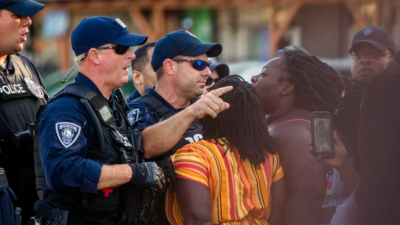 A Black protester voiced anger at police in South Carolina. She got 4 years in prison. By AP and NPR
A Black protester voiced anger at police in South Carolina. She got 4 years in prison. By AP and NPR
Brittany Martin, center, confronts police as demonstrators march in protest of George Floyd’s death May 2020 in downtown Sumter, S.C. Martin.
A pregnant Black activist serving four years in prison for her behavior at racial justice protests, is scheduled to have her sentence reconsidered as she struggles to reach her due date behind bars. “She’s in jail because she talked in America,” said Sybil Dione Rosado, her trial attorney. “She’s a dark-skinned Black woman who is unapologetically Black and radical.” Read more
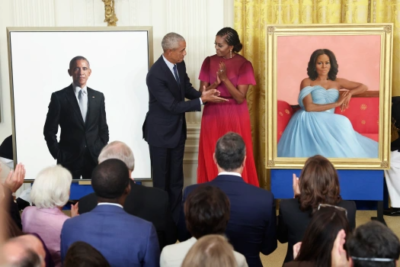 Barack and Michelle Obama make first joint return to the White House for unveiling of official portraits. By Maegan Vazquez / CNN
Barack and Michelle Obama make first joint return to the White House for unveiling of official portraits. By Maegan Vazquez / CNN
Former President Barack Obama and former first lady Michelle Obama’s official White House portraits were unveiled during an emotional ceremony at the White House on Wednesday — marking their first joint visit to the building since they left in 2017 and the return of a Washington tradition last celebrated 10 years ago. The history-making portraits of the Obamas stand in contrast to those of other US presidents and their spouses hung on the White House walls, depicting the first Black President and first lady through the perspectives of contemporary artists working outside many of the conventions of traditional political portraiture. Read more
Ethics / Morality / Religion
 The Christian right’s Faustian bargain. By Mark Silk / RNS
The Christian right’s Faustian bargain. By Mark Silk / RNS
“Trump should fill Christians with rage,” begins the headline on Washington Post columnist Michael Gerson’s latest opinion piece. “How come he doesn’t?”
Gerson, former chief speechwriter for George W. Bush and prominent evangelical-around-town, states the answer as succinctly as anybody: “Much of what considers itself Christian America has assumed the symbols and identity of white authoritarian populism — an alliance that is a serious, unfolding threat to liberal democracy.” How did we get to this point? Read more
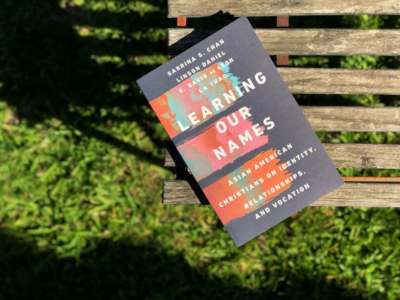 In ‘Learning Our Names,’ Asian American Christian authors reclaim their stories. By
In ‘Learning Our Names,’ Asian American Christian authors reclaim their stories. By
‘There’s a hyper visibility at times when you’re seen as a foreigner, and then there’s an invisibility when our stories aren’t acknowledged.’
Many Asian Americans are tired of being told who they are. Nerdy overachievers. Perpetual foreigners. Quiet and submissive. Interchangeable. Too proximate to whiteness to experience oppression, but too nonwhite to be included. For the authors of “Learning Our Names,” a new book from InterVarsity Press published Aug. 30, recovering their names has been a way to both embrace their Asian American stories and their identities as children of God. Read more
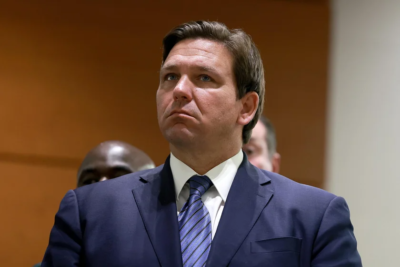 Hillsdale, Michigan Christian college, is infiltrating Florida’s schools. By Mary Harris / Slate
Hillsdale, Michigan Christian college, is infiltrating Florida’s schools. By Mary Harris / Slate
The changes to Florida’s educational system over the past year have been pretty breathtaking—and it turns out, all the attention-grabbing education bills DeSantis has been passing were years in the making. They’re part of a larger project being driven not just by Florida but by a small liberal arts college in Michigan known as Hillsdale. The Christian school has been described as a “citadel of American conservatism” The connection between Florida’s school laws and Hillsdale’s influence was uncovered by Sommer Brugal, a K–12 education reporter for the Miami Herald. On Tuesday’s episode of What Next, I spoke with Brugal about how Florida got here, what Hillsdale has been doing, and whether this is all just beginning. Our conversation has been edited and condensed for clarity. Read more
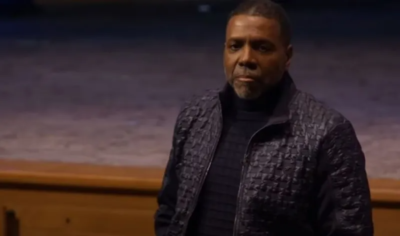 Mega Preacher Creflo Dollar Says His Preaching On Tithing Was All Wrong: Black America Responds. By Ann Brown / The Moguldom Nation
Mega Preacher Creflo Dollar Says His Preaching On Tithing Was All Wrong: Black America Responds. By Ann Brown / The Moguldom Nation
During a recent sermon entitled “The Great Misunderstanding,” Dollar said that the 10 percent tithe concept was a rule cited in the Old Testament. Since he is preaching for the New Testament, his followers didn’t need to submit to that rule. Instead, he noted, under the New Testament, people can tithe whatever they are comfortable with–more or less than 10 percent. Black America had thoughts on Dollar’s the u-turn on tithing. Read more
Historical / Cultural
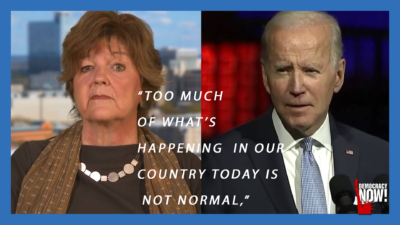 Historian of Radical Right: Biden Is Correct, Trump Poses Existential Threat to Future of Democracy. By Amy Goodman / Democracy Now
Historian of Radical Right: Biden Is Correct, Trump Poses Existential Threat to Future of Democracy. By Amy Goodman / Democracy Now
In a primetime address Thursday, President Biden warned Donald Trump and his radical supporters are threatening the foundations of the republic. Biden said, “Too much of what’s happening in our country today is not normal,” and that MAGA Republicans present a “clear and present danger to our democracy,” referring to Trump’s campaign slogan of “Make America Great Again.” We speak with Nancy MacLean, author and Duke University historian, who says Biden’s speech was a “wake-up call” for the nation and mainstream media. Read more
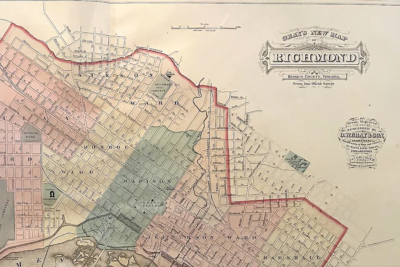 Richmond’s statues fell. Now these sisters aim to lift up Black history. By Gregory S. Schneider / Wash Post
Richmond’s statues fell. Now these sisters aim to lift up Black history. By Gregory S. Schneider / Wash Post
They learned that as early Richmond began to industrialize, plantation owners would hire out their enslaved workers to city businesses and factories. Many of the workers lived in town, often alongside immigrants from Germany or Ireland as well as free Blacks, and were able to pick up money of their own through side businesses. Shortly before the Civil War, more than one in eight free residents of Richmond was Black, according to the 1976 National Register application for Jackson Ward submitted by the Virginia Department of Historic Resources. Read more
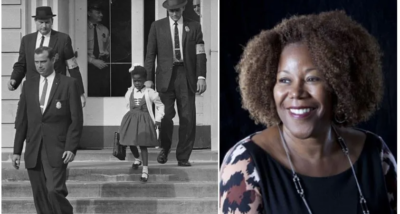 She was the first Black child to desegregate her school. This is what she learnt. By Mary Louise Kelly, Elena Burnett, Mallory Yu and Courtney Dorning / NPR
She was the first Black child to desegregate her school. This is what she learnt. By Mary Louise Kelly, Elena Burnett, Mallory Yu and Courtney Dorning / NPR
The morning of November 14, 1960, a little girl named Ruby Bridges got dressed and left for school. At just six years old, Ruby became the first Black child to desegregate the all-white William Frantz Elementary School in New Orleans. Federal marshals had to escort Ruby, as she was faced with throngs of angry white protestors restrained by barricades. Today, she is a civil rights activist and author, with her most recent children’s release, I Am Ruby Bridges: How one six-year-old girl’s march to school changed the world, telling the story of that day, with illustrations by Nikkolas Smith. She joined All Things Considered to share more about her experience, and what today’s children can learn from what she endured. Read more
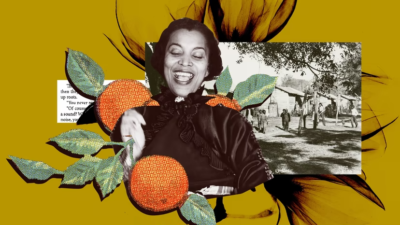 Zora Neale Hurston Is for Everyone. By Ibram X. Kendi / The Atlantic
Zora Neale Hurston Is for Everyone. By Ibram X. Kendi / The Atlantic
Her work shows us that our lives are defined not by tragedy but by joy
Most known for her novel Their Eyes Were Watching God, Hurston, a product of rural central Florida who emerged in the 1920s as one of the lights of the Harlem Renaissance, is now considered one of the greatest American creators of the 20th century. A folklorist, an anthropologist, a short-story writer, a filmmaker, a novelist, and an essayist—in many ways she captured the many ways of life. She captured signs of everyday Black life brazenly thrusting forth in love and joy despite the murderous and miserable shadows of racism cast over Black lives a century ago. Read more
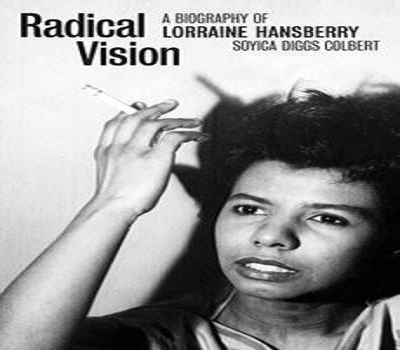 Lorraine Hansberry and the Black Radical Tradition. By Shane Vogel / AAIHS
Lorraine Hansberry and the Black Radical Tradition. By Shane Vogel / AAIHS
Soyica Diggs Colbert’s Radical Vision: A Biography of Lorraine Hansberry restores Lorraine Hansberry, the artist, to the Black radical tradition.
While other scholars and critics have pointed toward Hansberry’s neglected radicalism, Colbert brings a comprehensiveness and a transformative engagement with Hansberry’s archive to this project, including unpublished work and close engagement with still-restricted material at the Schomburg Center for Research in Black Culture. She details not only the explicit contributions Hansberry made to the Black radical tradition—her deep study with Du Bois, her time working at Paul Robeson’s radical monthly Freedom, her involvement with the Black women’s radical organization Sojourners for Truth and Justice. Read more
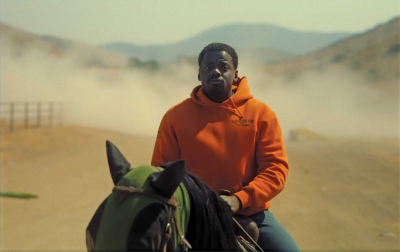 Jordan Peele’s Extraterrestrial Americana. By Stephen Kearse / The Nation
Jordan Peele’s Extraterrestrial Americana. By Stephen Kearse / The Nation
When Black people say “no” or one of its variants in response to some stressful or hazardous situation, we both affirm and negate the circumstances before us. An assertion of agency, “nope” acknowledges the problem while also refusing to further engage. To say “nope” is to stretch a moment of fear, intrigue, or suspicion into a chance for self-assessment and playmaking. Can I survive this? Does the risk outweigh the reward? Do I want to be here? Nope? Time for a different move, usually an exit. Nope, the third feature film from the director and screenwriter Jordan Peele, taps into the sense of apprehension and opportunity that its title evokes. Read more
Sports
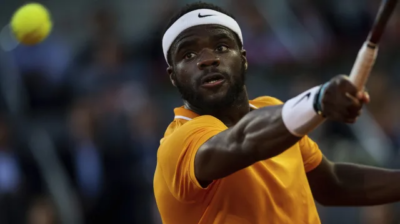 Frances Tiafoe: The story behind tennis’ unlikely hero. By Jerry Bembry / Andscape
Frances Tiafoe: The story behind tennis’ unlikely hero. By Jerry Bembry / Andscape
How the son of African immigrants became the future face of American tennis
Tiafoe, the son of immigrants from the African nation of Sierra Leone, was the poor kid who fell in love with a rich man’s sport. He was the son of a tennis center custodian, wearing hand-me-downs while the kids in his orbit arrived at the JTCC in chauffeur-driven Rolls-Royces. He’s gone from living with his dad and twin brother in the tennis center’s storage room to a luxury apartment with an amazing view on the Southwest D.C. waterfront. Read more
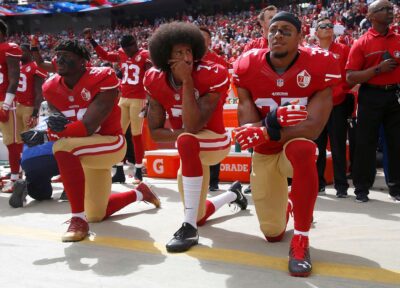 The Inside Football Story of the Kaepernick Saga. By Pamela Rafalow Grossman / The Progressive Magazine
The Inside Football Story of the Kaepernick Saga. By Pamela Rafalow Grossman / The Progressive Magazine
‘Kaepernick & America,’ the first full-length documentary on the activist quarterback, explores how he brought change to the forty-yard line.
The name ‘Colin Kaepernick’ is provocative. He put his ideals above his wallet. He basically said, ‘I understand the consequences. I will live with whatever happens,’” says Gary Cohen, co-producer of the first feature-length documentary on the Colin Kaepernick story, which premiered at the 2022 Tribeca Film Festival and is available to stream online beginning September 2. For a non-NFL-watching audience, the movie makes clear just how prominent Kaepernick was in the mainstream sports world—and thus how much he risked and ultimately sacrificed. But even ardent fans will gain new insight. Read more
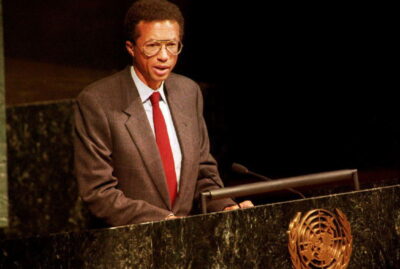 Arthur Ashe, athlete and activist. By Jim Brown / CBS News
Arthur Ashe, athlete and activist. By Jim Brown / CBS News
With its white roof silhouetted by the New York City skyline, for 25 years Arthur Ashe stadium, a cathedral of tennis and home of the U.S. Open, has hosted some of the game’s greatest moments, while honoring one of America’s greatest athletes, Arthur Ashe “Any name could have been put on this stadium, but they used a name who was about inclusion,” said Jeanne Moutoussamy-Ashe, Arthur’s wife. She was at the opening of the stadium named for her late husband, twenty five years ago. Arthur Ashe was much more than a tennis player. Born in segregated Richmond, Virginia, he was the first Black man to win the U.S. Open, in 1968, followed by historic triumphs at the Australian Open and Wimbledon. Read more
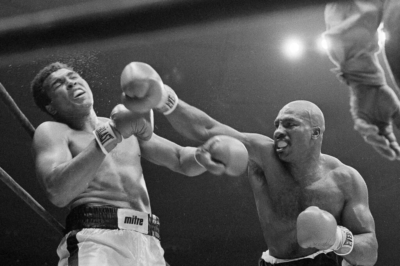 Earnie Shavers, Hard-Punching Heavyweight, Is Dead at 78. By Richard Goldstein / NYT
Earnie Shavers, Hard-Punching Heavyweight, Is Dead at 78. By Richard Goldstein / NYT
He won 68 bouts by knockout and fought some of the biggest names in boxing. He lasted 15 rounds against Muhammad Ali. But he never won a championship.
Earnie Shavers, who was regarded as one of the hardest punchers in boxing history, but who failed in his two quests to capture a world heavyweight championship in the 1970s, died on Thursday in Virginia, a day after his 78th birthday. Shavers won 74 bouts, 68 by knockouts, lost 14 and fought to one draw in a professional career that lasted from 1969 to 1995. The boxing publication The Ring recently ranked Shavers as the seventh-greatest puncher of all time. Read more
 What Brittney Griner’s Income Says About Women’s Basketball. By Mary Pilon / NYT
What Brittney Griner’s Income Says About Women’s Basketball. By Mary Pilon / NYT
Brittney Griner, the W.N.B.A. eight-time All-Star and two-time Olympic gold medalist, remains in a Russian jail, nearly 200 days after she was arrested on Feb. 17 for possessing less than a gram of hashish oil.
What Ms. Griner was doing in Russia in the first place reveals an inconvenient truth: that for more than a decade, Russian oligarchs have valued American female star athletes more than U.S. executives have. Ms. Griner, like roughly 70 of her fellow W.N.B.A. athletes, has supplemented her income by playing overseas during the W.N.B.A. off-season. While American fans are supporting the W.N.B.A. — filling up arenas, donning jerseys, following players on social media — in many ways American executives do not. Read more
Site Information
Articles appearing in the Digest are archived on our home page. And at the top of this page register your email to receive notification of new editions of Race Inquiry Digest.
Click here for earlier Digests. The site is searchable by name or topic. See “search” at the top of this page.
About Race Inquiry and Race Inquiry Digest. The Digest is published on Mondays and Thursdays.
Use the customized buttons below to share the Digest in an email, or post to your Facebook, Linkedin or Twitter accounts.